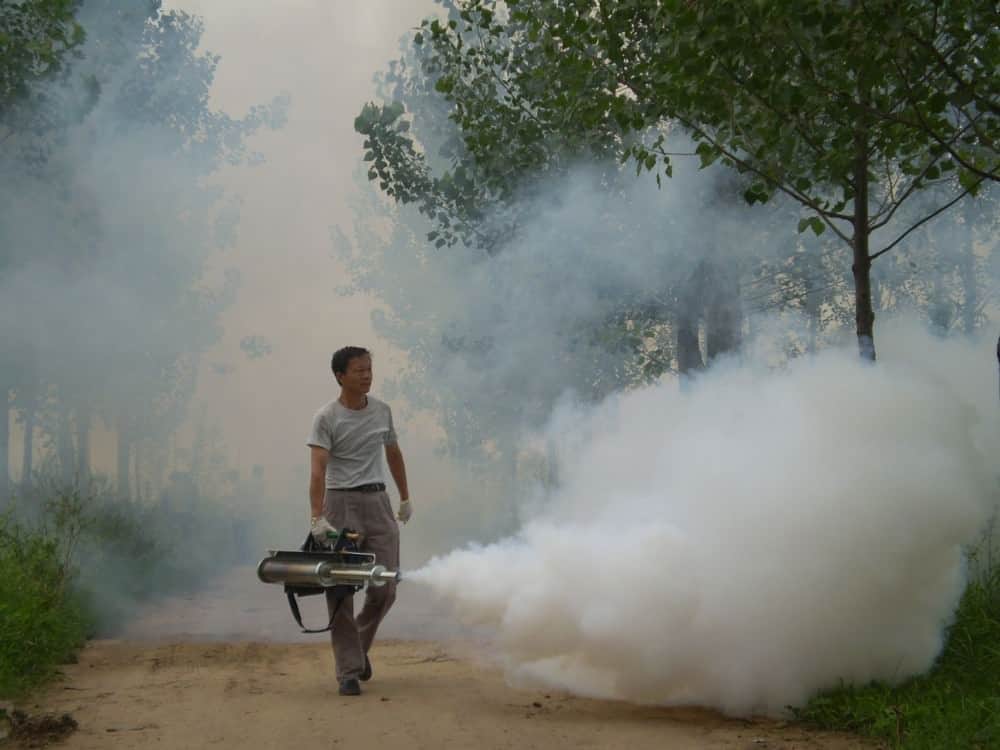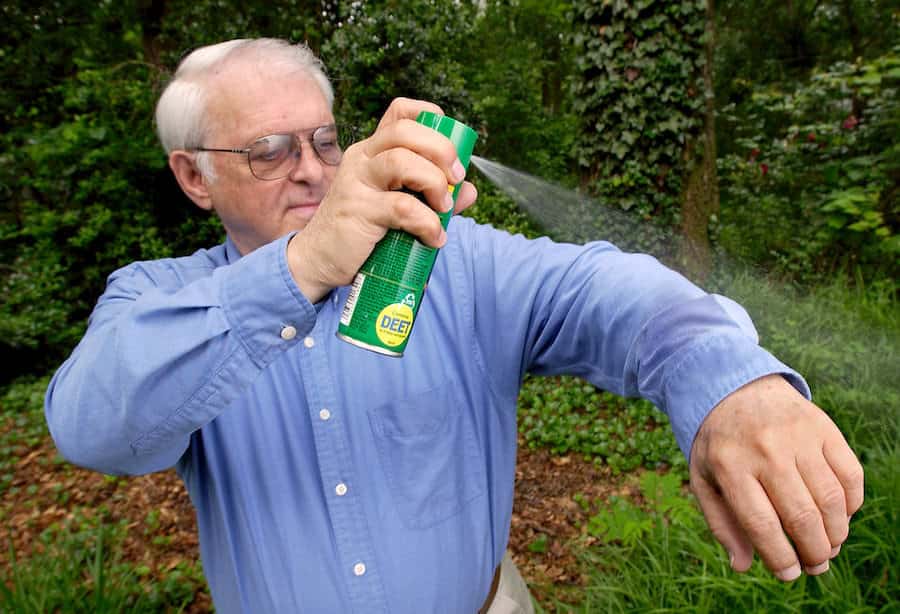What Do Mosquitoes Eat?
Female mosquitoes are more interesting than you might have initially thought. For example, did you know that it’s only female mosquitoes that feed on blood? The source of this blood can be from any warm-blooded creature, including humans.
While researching what mosquitoes eat, it was discovered the sole reason why it’s only the female mosquito that feeds on blood is because she is the one tasked with producing, and then laying, eggs.
These eggs need protein and the blood that the female draws from animals, ourselves included, provides this protein. After a female mosquito mates with a male, her need for blood immediately increases. She will look for a suitable candidate and then go in for a feast.
After the female is full of blood, her body will start producing eggs. She will then lay these eggs on any standing or still water she can find. Small, stagnant ponds or containers of water are among the female’s favorite locations.
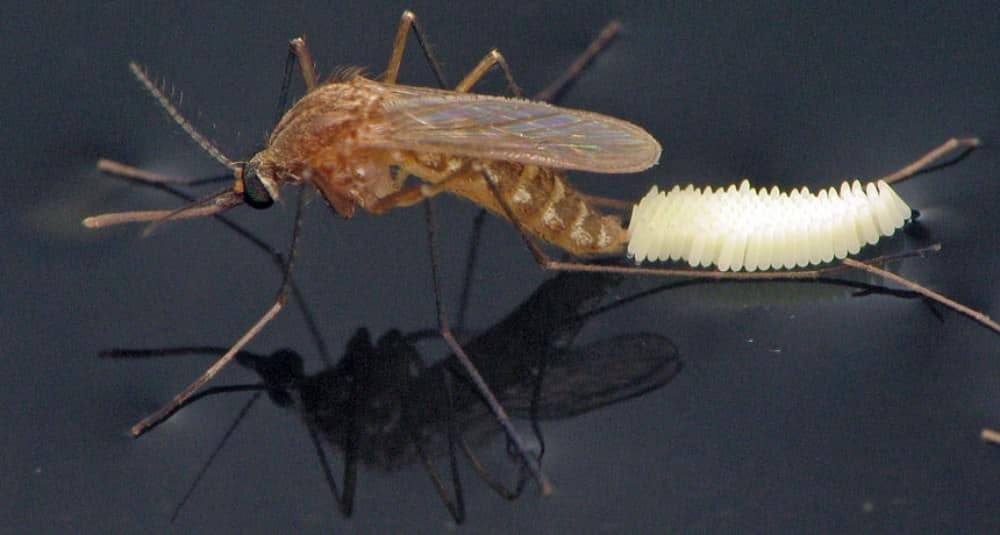
Once a batch of eggs is laid, the female will quickly look for another host to feed from. Doing so means that she can begin producing the next batch of eggs and repeating the life cycle. She will repeat this process several times throughout her relatively short lifespan.
As the year comes to an end and the weather gets cooler, females of certain mosquito species will start preparing for their hibernation. They will lay their final batch of eggs in a protected area, where they will stay safe during the winter.
With the onset of cold weather the female changes her feeding habits. Instead of focusing on protein-rich blood, she will only feed on old, rotten fruit and other sugar-rich foods. The female mosquitoes need this extra sugar to fatten up before the cold winter.
During hibernation, the female mosquito will freeze and actually pause her life. As spring approaches and the temperature slowly rises, she will thaw and produce one last batch of eggs before dying.
The Proboscis, an Important Feeding Tool
The female mosquito differs from the male in several ways. Key among these is that she is equipped with a proboscis.
A proboscis is a special feeding instrument which allows the female mosquito to pierce the skin of those that she feeds on. It also acts somewhat like a straw, allowing her to draw blood easily from the host.
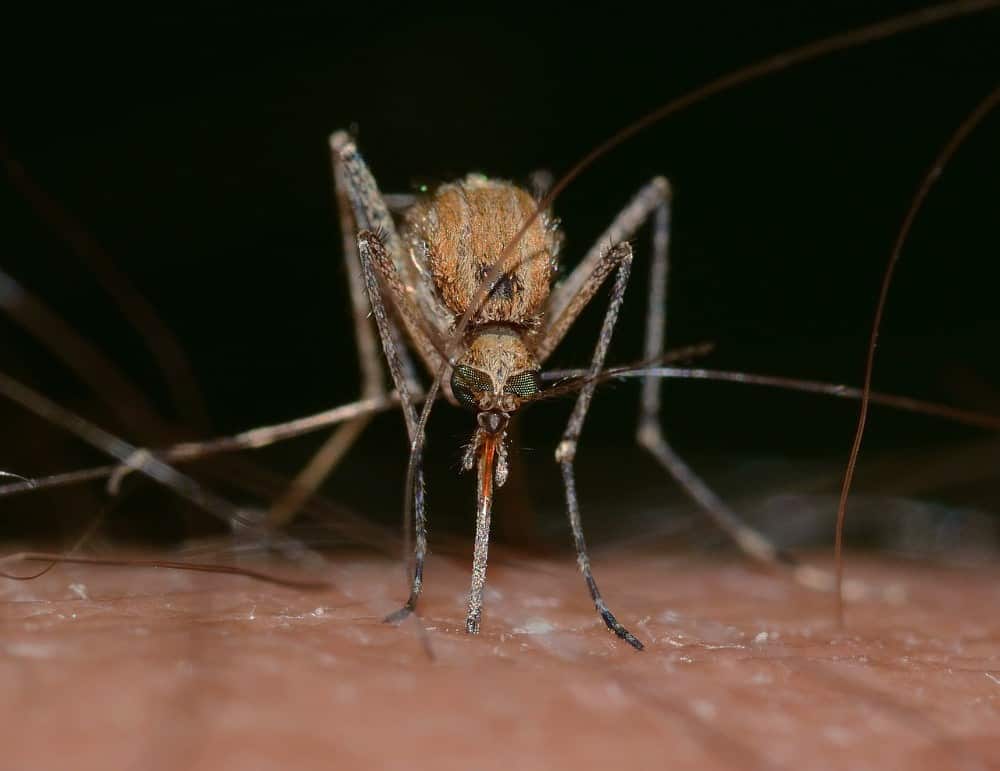
When the female bites, her saliva will be passed to the host through the proboscis. This saliva then mixes with the blood of the host. Because the saliva contains several special purpose chemicals, it acts as an anticoagulant. This means it stops the host’s blood from clotting, making feeding easy.
Not All Mosquito Species Feed on Blood
While we generally think of all mosquito species as blood-sucking pests, this isn’t strictly true. In fact, there are a few mosquito species where the female only needs to feed on carbohydrates in order to produce eggs. The females of these species can still feed on blood if they wish, but this is not a biological necessity.
Some other species don’t even like human blood. They prefer other creatures like reptiles or birds and will only feed on humans as a last resort.
Of these species, one of the most interesting is the elephant mosquito, also known as Toxorhynchites. This is one of the largest mosquito breeds in the world. They can reach up to 0.7 inches in length and boast almost an inch in wingspan.
This mosquito can be found all over the world where there are dense forests or jungles. It’s not only identified by its enormous size, it’s also one of the most colorful mosquito species. Some people even find elephant mosquitoes rather beautiful!
Before you get too freaked out by the thought of being bitten by this gigantic monster, you should know that this species—thankfully—do not feed on blood.
Instead, they feed on foods rich in complex and simple carbohydrates. Like other mosquitoes, they like to eat honeydew or plant sap, and suck the juices from old or damaged fruit.
Where this species’ diet becomes really interesting is when the offspring are still developing as larvae. Elephant mosquito larvae actually feed on other mosquito larvae.
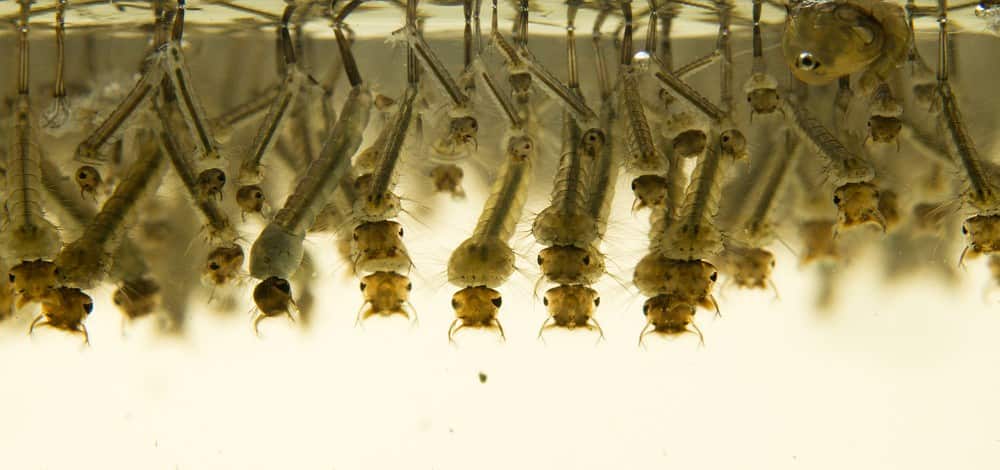
In fact, scientists have tried to introduce elephant mosquito larvae to areas outside of their natural habitat. They were hoping that the cannibalistic youngsters would exterminate other, disease-carrying, mosquito species.
Unfortunately, the scientists ran into quite a big problem. They accidentally introduced the toxorhynchites amboinensis instead of the toxorhynchites splendens. These differing species ended up eating each other, not the bad guys that the scientists had hoped they would.
What Do Male Mosquitoes Eat?
Male mosquitoes have a much shorter lifespan compared to female mosquitoes. Many don’t even live past a week. That doesn’t mean they don’t need to eat though. They still need fuel to perform their essential biological processes and duties.
An essential part of both the male and female’s diet is nectar. This sweet, sugary substance provides male mosquitoes with all the energy and nutrients they need.
Mosquitoes are especially attracted to flowers. If you happen to have a garden full of vibrant, colorful flowers, you might just find yourself with an infestation of these pests.
Some people like to plant special flowers that attract butterflies, this can be a mistake, since most of those flowers attract mosquitoes as well.
Mosquitoes also need water, both for drinking and for laying eggs. Therefore, any plant that grows in or around water is a lovely treat for these flying pests. Not only can they drink from the water source, but they will also feed from any nectar these plants provide.
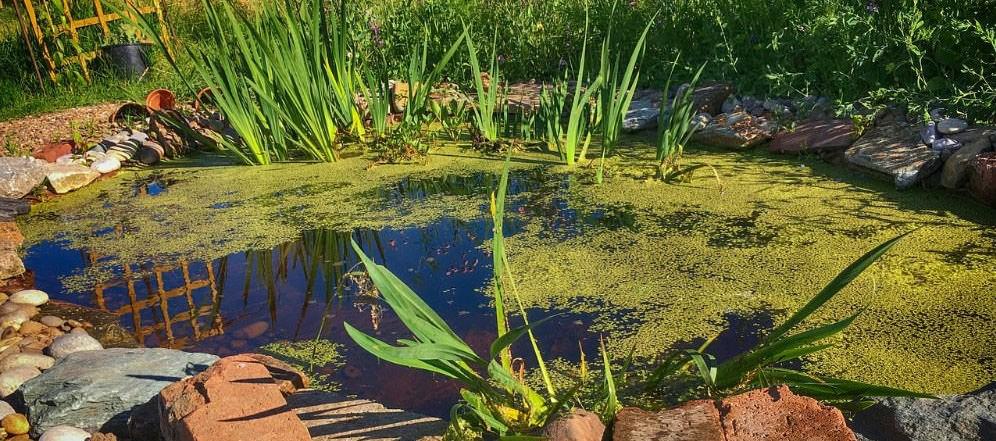
Plants which mosquitoes love to feed on include water-loving plants, such as irises and cardinal flowers. Both of these plants require a significant amount of water and they make a sweet treat for hungry mosquitoes.
You shouldn’t avoid growing plants that mosquitoes like completely though. If you do plant a few mosquito favorites, just make sure that you do this far away from your outside sitting areas. This might even go some way toward minimizing the chances of being bitten.
Male mosquitoes are innocent when it comes to biting humans though. They do not have the same piercing proboscis that female mosquitoes do. So, they can’t feed from us even if they wanted to. The male also doesn’t need the protein levels that blood provides.
How Often Do Mosquitoes Feed?
As I mentioned above, the female needs to feed on protein-rich blood to be able to produce eggs. She will usually feed until her abdomen is full. This can actually be seen while she feeds.
After feeding and satisfying her hunger and that of her developing eggs, the female will rest for two to three days in a warm, damp location. While she is resting, her eggs will develop further. After the female is rested she will look for the perfect spot to lay her precious cargo.
Once the eggs have been laid, the female is ready to start feeding again from a new host. If she is interrupted while feeding, she will find another host to continue her feast.
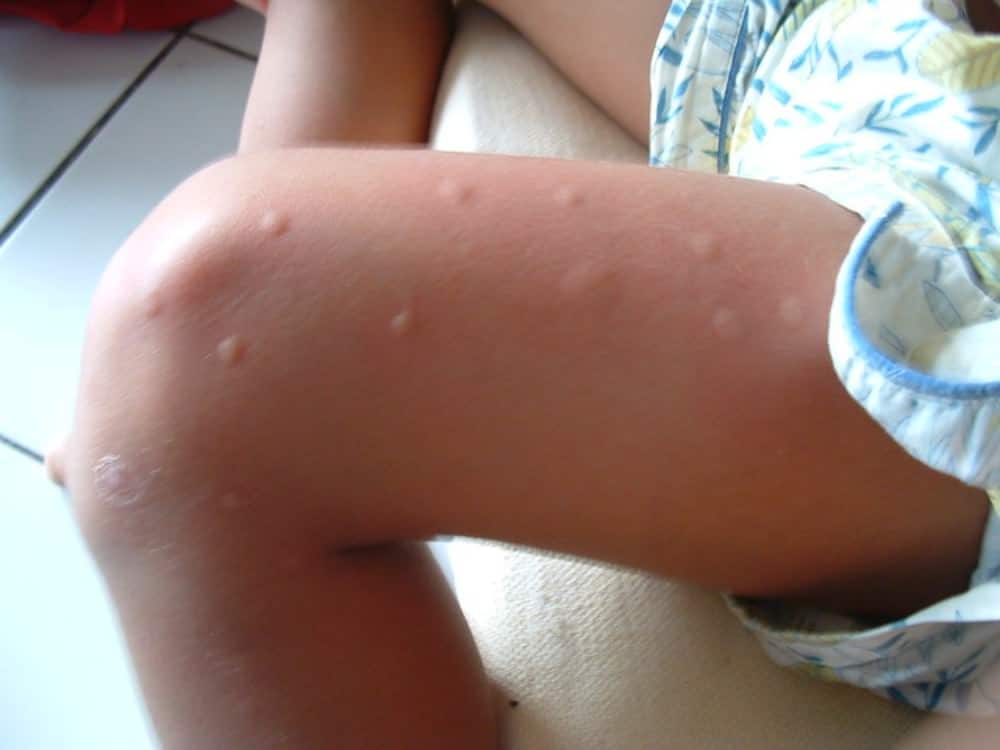
The male mosquito will need to feed daily in order to get the nourishment he needs. The male will usually mate with a female and then die soon afterwards.
How Long Can Mosquitoes Live Without Feeding?
Females can easily go their whole life without feeding on blood, they just won’t produce any viable eggs.
Mosquitoes need the energy they get from the sweet substances they eat. Another important part of a mosquito’s diet is water. Did you know that mosquitoes can actually become dehydrated if they go too long without water?
Without any food sources at all, mosquitoes will die relatively quickly because they do not have the energy needed to power their bodies.
There are more than 3,000 species of these amazing insects in the world and discovering what mosquitoes eat in their varied and interesting diets has intrigued us.



